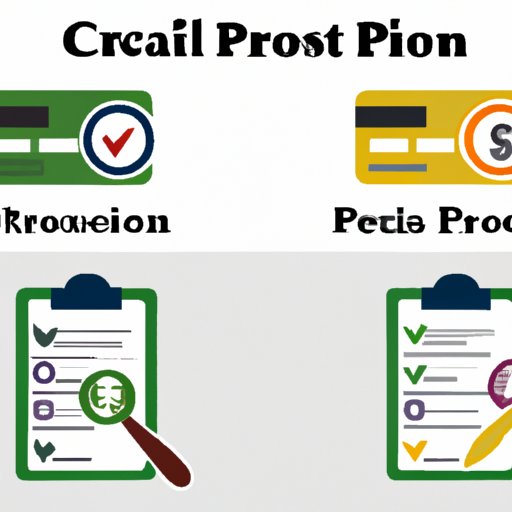
I. Introduction
When you need to fund a major expense, like a home renovation or a medical emergency, you may not have the cash on hand to pay for it. In these cases, a personal loan can be a helpful financial tool. A personal loan is an unsecured loan that you can use for just about any purpose. However, taking out a loan is a big decision and one you shouldn’t make lightly. Follow this guide to help you understand what you should consider before taking out a personal loan.
II. A Beginner’s Guide to Taking Out a Personal Loan
Before you apply for a personal loan, it’s worth understanding the different types of loans available to you. Some options include:
- Secured Personal Loans: These loans are backed by collateral, such as a vehicle or home, which can be seized if you can’t make your payments.
- Unsecured Personal Loans: These loans don’t require any collateral, but generally have higher interest rates.
- Credit Cards: Credit cards can be a good option for smaller purchases, but they often have higher interest rates than personal loans.
When considering a personal loan, you should also think about the amount of money you need, the expected repayment terms, and the interest rate you’ll pay. Some other factors to consider include:
- Your credit score and credit history
- Your income and employment status
- The purpose of the loan
- The application process and requirements
It’s important to look at all of these factors together when making a decision about whether or not to pursue a personal loan.
III. 5 Factors to Consider Before Taking Out a Personal Loan
Once you have an idea of the different types of loans available to you, it’s important to look at the following five factors when deciding which loan to choose:
1. Interest rates and fees
The interest rate you’ll pay on your personal loan will depend on your credit score, loan amount, and other factors. Additionally, many lenders will charge additional fees or penalties if you’re late on your payments. It’s important to understand all of the fees and charges associated with a loan before signing on the dotted line.
2. Loan amount and repayment terms
Think about how much money you need to borrow and how long you’ll need to repay the loan. Personal loans may have repayment terms ranging from a few months to several years, so choosing a term that aligns with your budget and financial goals is key.
3. Your credit score and credit history
Your credit score and credit history will help determine the interest rate you receive on your loan. If your credit score is low, look for ways to improve your score before applying for a loan.
4. Your income and employment status
Lenders will also look at your income and employment status to determine whether you can afford to repay the loan. Having a stable job and steady income will make you a more attractive borrower.
5. The purpose of the loan
Some lenders will require you to provide a specific reason for taking out the loan. Depending on the purpose of the loan, you may be eligible for lower interest rates or more flexible repayment terms.
IV. How to Choose the Best Personal Loan for Your Circumstances
Now that you understand what factors to consider when taking out a personal loan, it’s time to compare different loan options. When choosing a loan, you should:
- Research and compare different loan options
- Match your loan needs to the lender’s requirements
- Balance loan terms and interest rates
- Choose a reputable lender
V. Understanding the Pros and Cons of Personal Loans
While personal loans can help you fund important expenses, they’re not without their drawbacks. Here are some pros and cons to consider:
Pros:
- Quick access to cash
- Flexible use of funds
- Fixed repayment terms for budgeting
Cons:
- Higher interest rates than other types of loans
- Additional fees and penalties for late payments
- Potential impact on your credit score
VI. How to Compare Personal Loans from Different Lenders
When you’re ready to compare personal loans from different lenders, you should:
- Create a comparative list of lenders and their loan terms
- Understand differences in APR, fees, and repayment terms
- Pay attention to the fine print and understand loan agreements before signing
VII. Tips for Securing a Low-Interest Rate on Your Personal Loan
If you’re looking to secure a low-interest rate on your personal loan, you should:
- Improve your credit score before applying
- Demonstrate stable employment and steady income
- List collateral or co-signers, if applicable
- Negotiate with lenders for lower rates
VIII. What to Avoid When Taking Out a Personal Loan
When taking out a personal loan, it’s important to avoid these common mistakes:
- Taking out more than you can afford to repay
- Applying for multiple loans simultaneously
- Ignoring the terms and conditions of a loan agreement
- Failing to make payments on time
IX. Conclusion
When it comes to taking out a personal loan, there are many factors to consider. Knowing what loan you need, how much you can afford to borrow, and what lender to choose can help you make an informed decision. By following the tips in this guide, you’ll be able to navigate the process of taking out a personal loan with confidence.




